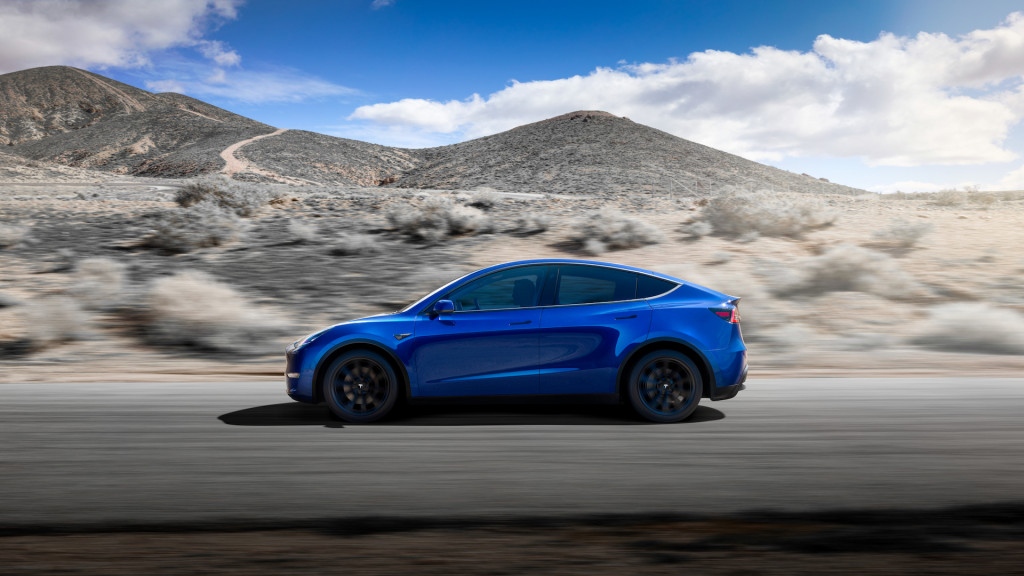Tesla's main battery supplier, Panasonic, says the two companies won't have enough battery-building capacity to support production of the Model Y.
In a conference announcing the company's annual earnings last Thursday, Panasonic CEO Kazuhiro Tsuga told reporters that "batteries will run out if Tesla starts to sell the Model Y and expands its business next year. What will we do then?" Bloomberg first reported the story.
Last month, Tesla CEO Elon Musk Tweeted that Panasonic's battery production at the companies' joint Gigafactory 1 in Nevada has constrained Tesla's production of the Model 3 since the carmaker began to ramp up production to 5,000 units a week last July.
READ THIS: Report: Panasonic pumps brakes on Tesla Gigafactory expansion plans
Tesla plans to begin producing its affordable Model Y SUV in the U.S. and Shanghai next year.
Last month, Panasonic announced it would curtail new investment in the Gigafactory, each company independently said it would work to improve efficiency from existing battery production lines at the factory, and Tesla said it would continue its scheduled investments in the plant.
A report in Business Insider, quoting current and former employees, noted that the factory produces enough waste to build an additional half-million battery cells per day, out of the 3 million a day it produces for Tesla.

Tesla Model Y
With car buyers around the world, and especially in the U.S., turning increasingly to SUVs and crossovers, the Model Y, could sell in even higher numbers, if Tesla can produce enough of to satisfy that demand. The Model Y is based on the Model 3.
Tesla is building a new factory in Shanghai, which Musk has said will produce more-affordable versions of the Model 3 and the Model Y. It is set to open with small-scale production this year. Tesla, however, has not announced a battery supplier for the Chinese factory, and has said it is seeking bids from several suppliers. Panasonic could be among them, but neither company has indicated expectations for the kind of tight-knit relationship in China that the two have in the U.S.
Tsuga said battery production in China and for the Model Y are among the issues he plans to discuss with Tesla.
The constraints on battery supply—as well as the reported waste—point to wider growing pains in the electric-car industry, as EV production and sales begin to outstrip supplies of batteries and the materials to make them.
DON'T MISS: Could battery lawsuits, material shortages delay some EVs?
A new report in Reuters notes that reserves of battery materials in the U.S. have not been comprehensively mapped. The report also notes that the U.S. has only one working lithium mine (with several others in development), and lacks enough processing facilities for cobalt and lithium to accommodate all the mining expected to come online.
The Senate Energy and Natural Resources Committee is considering a bill Tuesday, the American Mineral Security Act, to streamline permitting and regulation for mines that would develop critical materials for lithium-ion batteries, such as lithium, cobalt, and graphite. The bill would codify an executive order signed by President Trump in 2017 to prioritize development of those materials.
Green Car Reports reached out to Tesla seeking comment on this story, but did not hear back before publication.












